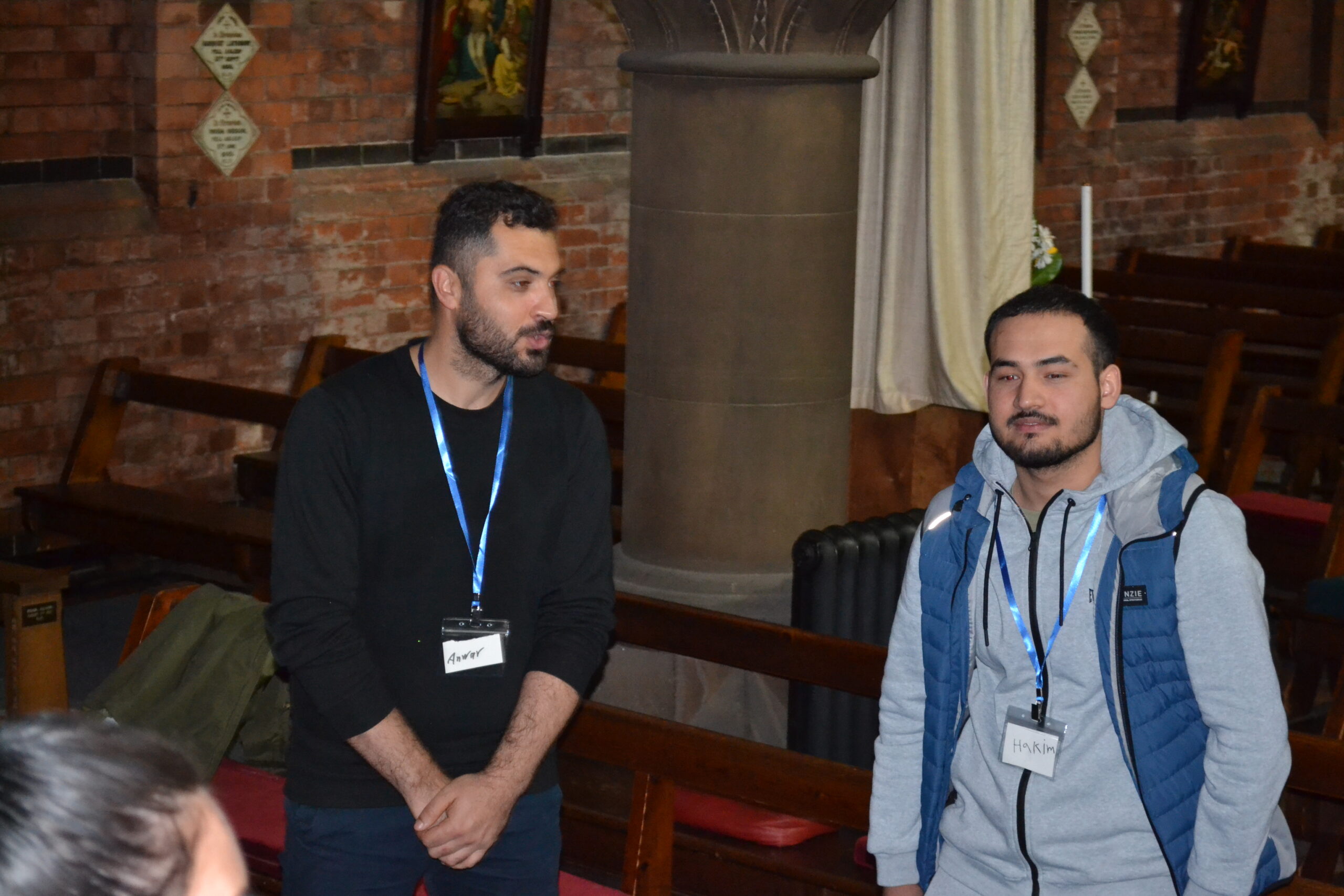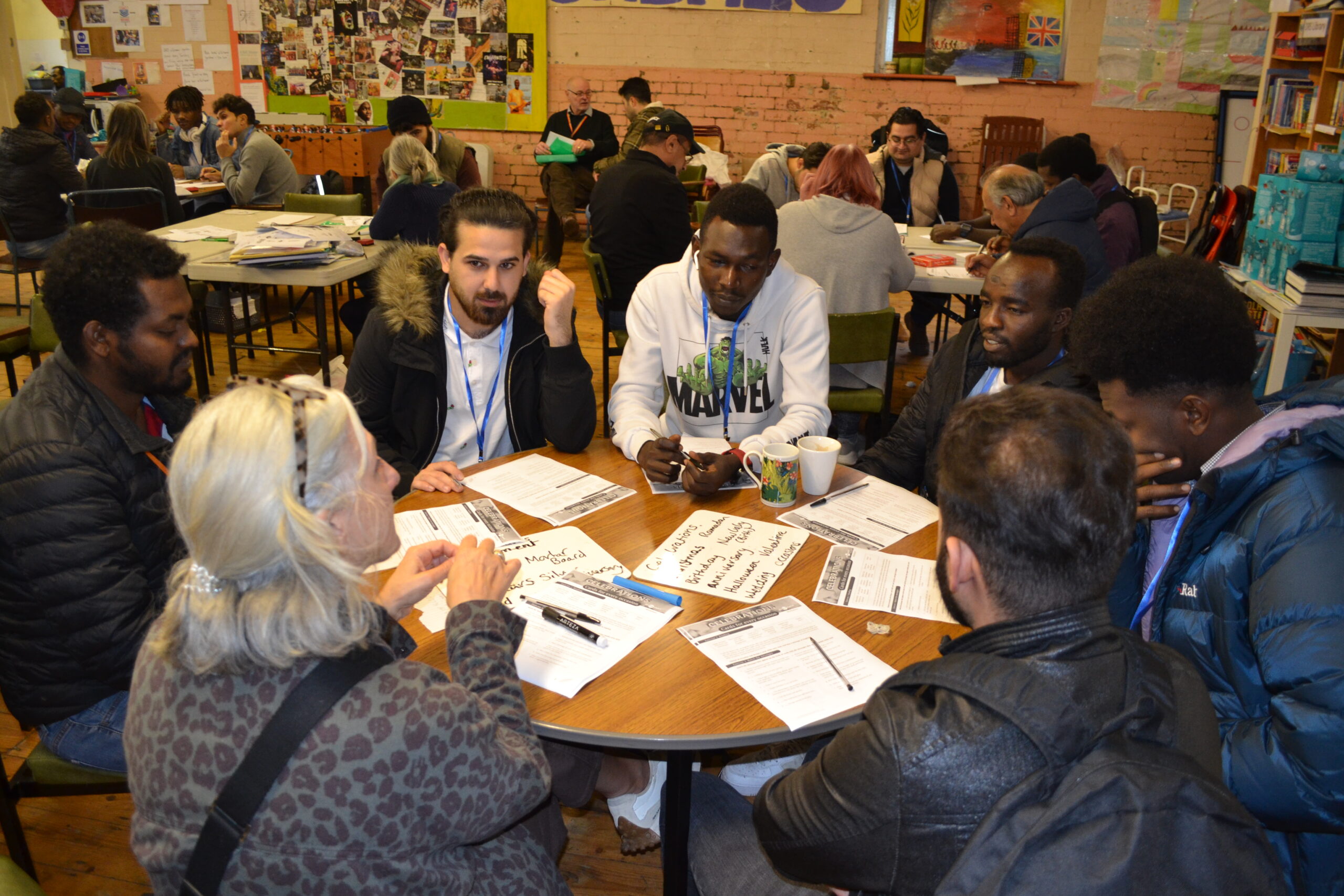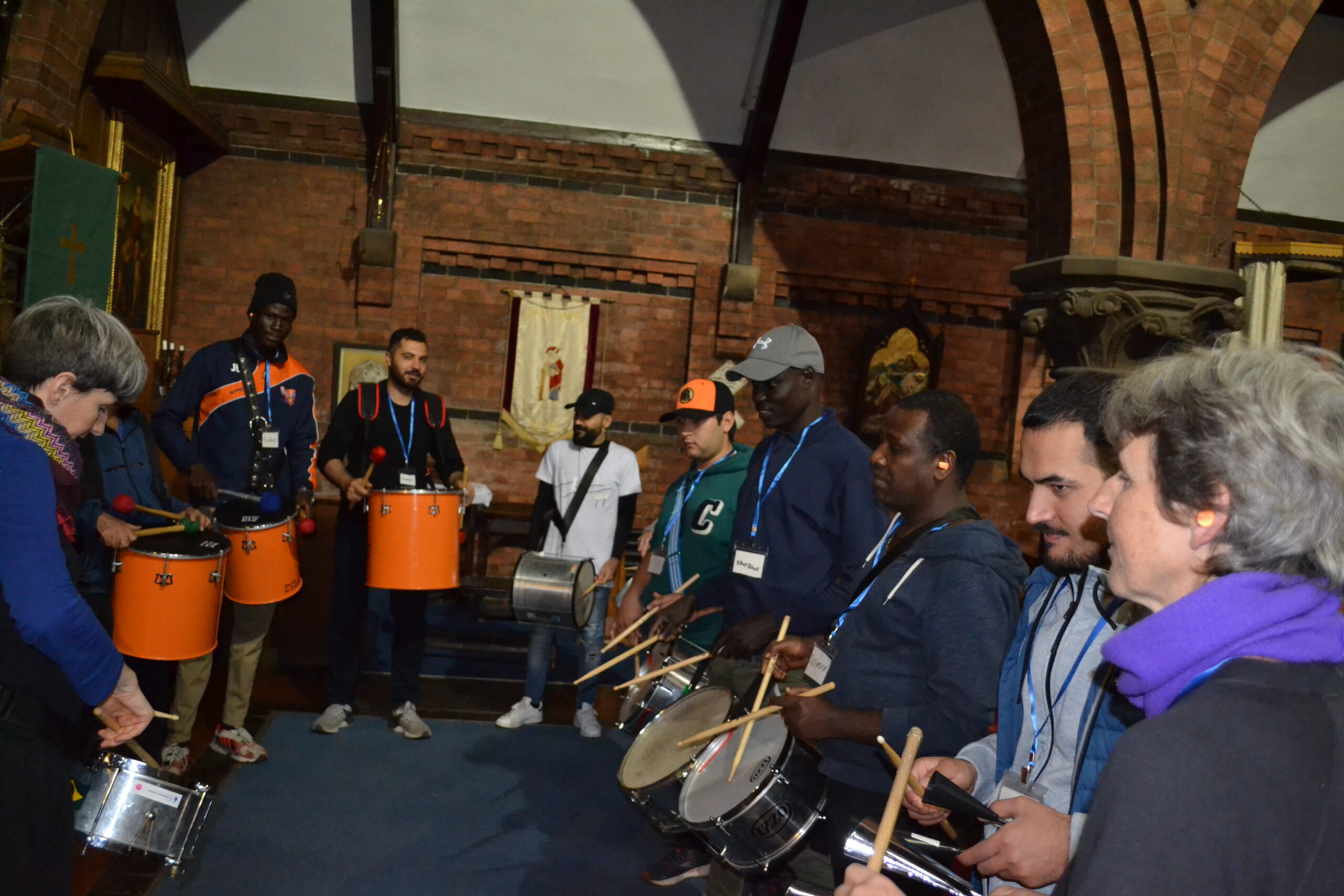Your basket is currently empty!
Overall, an estimated 1.1m people migrated to the UK in 2022 (year to June). After subtracting those who emigrated, the UK population rose by 504,000 – the net migration total. That is a record jump from a high of more than 330,000 seen in 2016, the year of the Brexit vote.
Asylum applications, including those arriving in small boats over the English Channel, reached 73,000 in the year to September – a figure that underlines that those migrants represent a very small proportion of all those who arrive in the country in any given period.

So what’s it like to be a refugee?
Depending on a persons situation (under 18’s, women, children, families for example) there are different pathways to Asylum. Single males often find themselves as the lowest priority when it comes to processing applications and the necessary paperwork. It is not uncommon for it to take up to 3 years for a single male to achieve a verdict on whether they can stay in the UK, or not. During that period of waiting, the people are given food and accommodation and a nominal allowance. Typically, asylum seekers will be ‘posted’ to a hotel and live in a shared hotel room with multiple other people, usually strangers. Their status means they are not permitted to work, or register for any services or memberships as part of their status they are given £8 a week. Meals are provided as part of the accommodation but obviously this means it is difficult to go out and get exercise or explore as they have to be in for meals times, or they don’t eat. The hotels are usually on the outskirts of a City, as with the case in Derby. The Asylum seekers typically have little means to access activity, other than walking, and rely on the support of voluntary organisations, such as DRS (Derby Refugee Solidarity) to help them navigate these difficult times.
How physical activity can support refugees?
Derby Refugee Solidarity describe themselves as a ‘grassroots movement working to provide aid and support to refugees’. They operate out of a Church Hall close to Derby City Centre. The centre is a real hub of physical activity and something for the people who use the service to anchor their week around. It’s not difficult to imagine how the mental health of a refugee could suffer given the losses and isolation these people are likely to feel. We all know hoe fantastic bringing more activity in to your life can be for your mental health and this is something DRS are trying to do more of. The centre opens on Thursday and Saturdays and offers multiple routes to activity. As a centre they really care about the wellbeing of their service users and try to focus their time on activities that bring enjoyment, over traditional ‘exercise’. Activities currently being run included football, table football, hiking, samba classes and music practice. They have previously explored Gym and were in the process of organising swimming but there are systematic barriers in place for these to work easily, such as appropriate kit and registrations. All visitors to the centre are offered recycled clothes, coats, shoes and the option of a free tailoring service. A key initiative is the offer of a (donated) bicycle for free to help them navigate the city more freely, as they typically aren’t able to afford public transport or other paid for travel. The centre has partnered with bike mechanics and takes old unwanted bikes as donations and fixes them up to an excellent standard before offering them. Some of the more long-standing refugees volunteer themselves in the centre as translators, tour guides, organisers, mechanics, kitchen staff, tea makers and other roles.
Active Derbyshire funded the service £3,000 of Sport England’s Together Fund for swimming vouchers, football sessions and days out to explore the Peak District . The football takes place at The Willows, a nearby indoor football centre – kit is also provided. They initially had trouble organising the Leisure Centre for swimming as the participants could not be registered, but after partnering with Everyone Active, they were able to create a voucher scheme and avoid the unnecessary red tape. This demonstrates a very simple solution to a all-too-common barrier.
The Refugees we spoke to look forward to the days when the centre is open, particularly the free snacks/treats, the activities, socialising and the opportunity to learn english. The centre is run entirely by volunteers and relies on donations, the English teachers are professional but helping voluntarily.


The centre users have typically emigrated from countries such as Iran, Iraq, Rwanda and Afghanistan.
We spoke to Saaed from Iran, who speaks word perfect English, he originally found Asylum in Austria for 5 years at the age of 22, but under Austrian law asylum seekers are not allowed to work, so he moved on to England and Derby where he has been for almost 2 years. He is still waiting for his papers to go through so he can gain permission to work. He asked if we could find him a rugby club to join as he’s a big fan of the sport. He is very popular amongst his service users but is keen to live a full life and become part of the community, there is no opportunity to visit family or friends at home, so the only connections he has are his fellow Asylum seekers . Outside of coming to the centre, he does very little and obviously this has been his life for a long time now. He is fit, communicates brilliantly in multiple languages and would be a great addition to any workforce. He is grateful to be here, but says the food is terrible. He showed us an award the centre was given from Her Majesty Queen Elizabeth as part of her Diamond Jubilee celebrations. He was very proud to be a part of the centre and is grateful for everything the UK and DRS have provided for him.
We spoke to Anwar, also from Iran, who also speaks great English. He and Saeed have become great friends but are very different. Anwar gives back a lot of his time to the centre and has become more of a volunteer than a user. He is a key translator and very helpful in terms of organising activities and helping to run the centre. He is a very warm and friendly guy and was looking forward to England vs Iran in the world cup.
What can we learn? How could we better support asylum seekers?
- The back log for asylum seekers is increasing
- Can we support more activities for this inactive population
- Could we partner these organisations with activity providers? Is there an opportunity to do more around workforce development and place them in voluntary community roles?
- Could we co-design and build opportunities for refugees with refugees. This ensures they are not only reflective of need/desire, but also gives the refugees involved more opportunities to be a part of the community, developing skills, building relationships etc that could be valuable when they go into work.
- Voucher scheme in the name of organisations is a great way to bypass the red tape around Gym/Leisure Centre registrations
- Can more free activities be shared amongst these groups?